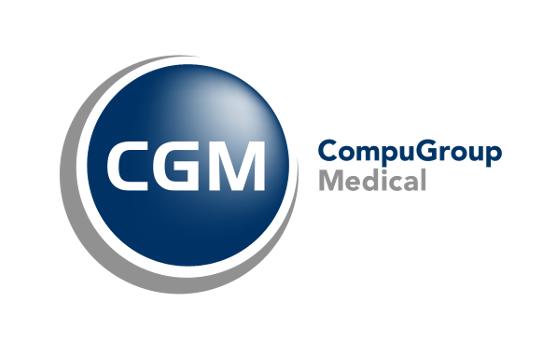 CompuGroup Medical (CGM), one of the leading e-health providers in the world, is looking back on a successful year 2021 in its Hospital Information Systems segment. Following the successful completing of the post-merger integration of the largest acquisition in CGM's history, the company's hospital business is now one of the leading providers of hospital information systems, laboratory information systems, social care imaging solutions and enterprise resource planning tools in Europe. With a significantly strengthened market position in the German core market, the hospital business is benefitting from new scale, building on an excellent customer base of more than 2,150 clinical and social providers. The company has won several outstanding projects with clinical institutions that are leading in digitization like Universitätsklinik Hamburg-Eppendorf (UKE), one of Europe's leading university clinics. This is testimony to the cutting-edge technological set-up of CGM's innovative product platform. The strong organic growth was driven by numerous digitization initiatives in the company's markets, for example adding connectivity and communication features in Germany and COVID-19 related solutions in the lab business.
CompuGroup Medical (CGM), one of the leading e-health providers in the world, is looking back on a successful year 2021 in its Hospital Information Systems segment. Following the successful completing of the post-merger integration of the largest acquisition in CGM's history, the company's hospital business is now one of the leading providers of hospital information systems, laboratory information systems, social care imaging solutions and enterprise resource planning tools in Europe. With a significantly strengthened market position in the German core market, the hospital business is benefitting from new scale, building on an excellent customer base of more than 2,150 clinical and social providers. The company has won several outstanding projects with clinical institutions that are leading in digitization like Universitätsklinik Hamburg-Eppendorf (UKE), one of Europe's leading university clinics. This is testimony to the cutting-edge technological set-up of CGM's innovative product platform. The strong organic growth was driven by numerous digitization initiatives in the company's markets, for example adding connectivity and communication features in Germany and COVID-19 related solutions in the lab business.
In 2021, CGM has enhanced its hospital portfolio with targeted add-on M&A. VISUS Health IT, one of the leading providers for IT-solutions to process and archive radiology images and data was fully integrated into the HIS segment. VISUS is providing more than 1,500 customers, thereof more than 900 clinics and more than 600 medical practices, with products that support the digital journey of CGM's hospital customers. VISUS software solutions facilitate the complex evaluation of medical images on the basis of Artificial Intelligence. In addition, KMS, the leading provider of data warehouse solutions, has strengthened CGM's portfolio since the previous year. With this, now fully integrated function, CGM adds value to more than 350 customers' business models through delivering tools for optimizing the clinical workflow based on process related data.
In the social area, end-to-end process support is a key prerequisite for successful digital transformation. CompuGroup Medical is offering a broad range of products and solutions tailored to post-acute customers' needs. The recent order from the German foundation Bethel, one of the largest diaconal institutions in Europe, confirms CGM's high quality product portfolio. The order includes the cloud enabled CGM SOZIAL HR Management, which is built on G3 technology and provides Bethel with a mobile treatment documentation service and a new web-based tool for resource and deployment planning for more than 20,000 employees. Looking ahead, there is an increasing need for mobile social services in the outpatient care market across Europe. CompuGroup Medical continues to invest in this growth area to launch further G3 based solutions until mid-2022. With this fully cloud-based product, CGM follows the megatrend of connected care for the benefit of the increasing number of people in need of treatment at home.
The need for digitization in the hospital sector has been additionally highlighted by the COVID-pandemic. As a response, the German government has passed the Hospital Future Act, defining a clear support process throughout the whole patient journey. This process starts before the hospital visit. After a visit at a general practitioner, the patient can book an appointment in a hospital. The hospital supports its patients through the digital onboarding process with apps for questionnaires and checklists and provides all the information and education needed. During this process, the patient can access the schedule or transfer-plans to post-acute areas or any following treatments. CompuGroup Medical is offering a broad range of products and solutions to support clinical customers in their digital transformation under the Hospital Future Act. In combination with CGM's CLICKDOC platform, it is possible to offer customized, white labeled patient portals for hospitals, deeply integrated into its workflows. In 2021, there has been intense activity supporting clinical customers assessing their digital progress and applying for the funding of specific projects. This has resulted in a funnel of leads, with the majority of customers still waiting for the funding approval. Until now, CGM has received confirmed orders relating to the Hospital Future Act of more than EUR 20 million, thus delivering on its expectations published last year.
"In 2021, the hospital segment has showed great progress at all future-relevant points," said Hannes Reichl, Managing Director Inpatient & Social Care, "We boosted the organic growth, complemented the portfolio by targeted M&A, and we are fully prepared for one of the greatest regulatory tailwinds we have seen in a long time in this space. The pandemic has pushed the hospital digitization to a new speed level and for these future challenges of all participants in the health care sector we are developing and delivering new products."